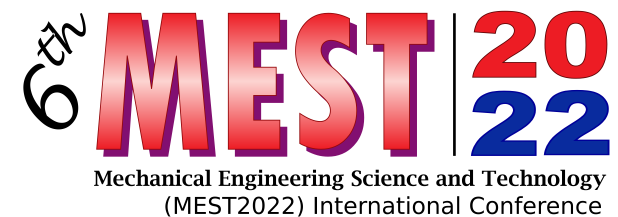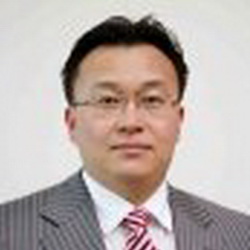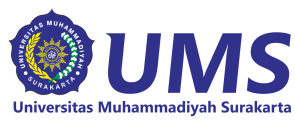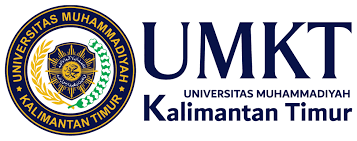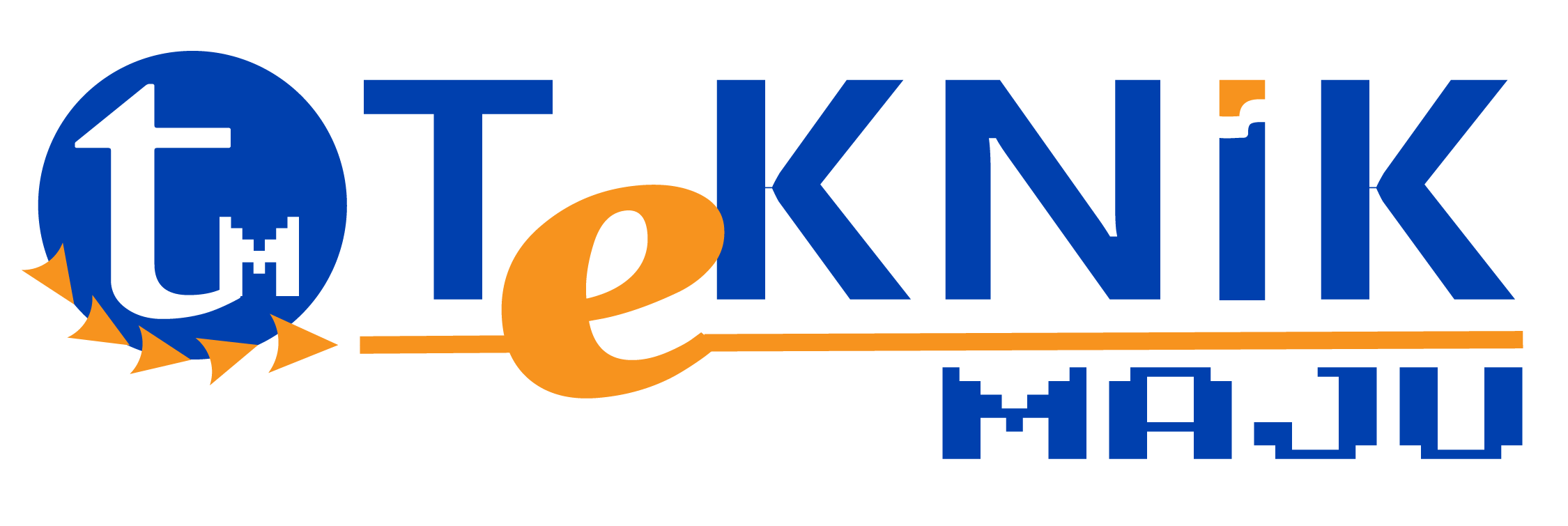MEST2022
| You have to login to submit MEST2022 papers. For the first time user, you need to create author account. If you forgot your password, request new password. |
The 6th Mechanical Engineering, Science and Technology (MEST2022) International conference.
20 - 21 December 2022 In Surakarta City, Indonesia
Introduction
MEST2022 invites all potential authors from universities and various organisations to submit papers in the area of mechanical, manufacturing, materials sciences and related interdisciplinary engineering fields. This conference is part of a conference program called International Summit on Science Technology and Humanity (ISETH) 2022 Organized by Universitas Muhammadiyah Surakarta.
The 6th Mechanical Engineering, Science and Technology (MEST2022) International conference is an annual the Mechanical Department of Universitas Muhammadiyah Surakarta event. All possible writers from universities and other organizations are invited to submit papers. The conference is a forum for academic exchange that provides a prompt presentation of articles on experimental, numerical, and theoretical studies that shed light on the critical topics of mechanical, thermal, fluid, and aerothermodynamics internal flow, heat and mass transfer, multiphase flow, turbulence modelling, combustion, engineering thermodynamics, thermophysical properties of matter, measurement, and visualization techniques. Contributions range from intriguing and significant research immediately applicable to industry development or practice to high-level student textbooks, explanations, distribution of technology, and good practice
Speakers
|
|
|
| Assoc. Prof. Waluyo Adi Siswanto (Universiti Muhammadiyah Malaysia (UMAM), Malaysia) |
Prof. Ock-Taeck Lim (School of Mechanical Engineering, University of Ulsan, Korea South) |
Focus and Scope
Track 1: Material Science and Engineering
Material Synthesis & Process, Composite, Ceramic, Polymers, Metals alloys and compounds, Nanomaterials, Nanoparticulates and nanocomposites, Biomaterials, Tissue engineering, Advance materials, Smart materials, Mechanical Properties, Corrosion, Materials computation and design, Surfaces and coating technology, Material characterization.
Track 2: Thermofluids and Renewable Energy
Heat and mass transfer, Nanofluids, Internal combustion engines, New and renewable energy, Energy engineering and management, Bio-fuels, Fuel cells, Computational Fluid Dynamics, Fuels and combustion, Turbomachinery, Fluid powers, Heat powers, Refrigeration and air conditioning, Membran technology, Aeronautics, Aerospace, Aerodynamics, Propulsion and Aircraft Design, Chemical process.
Track 3: Engineering Mechanics and Tribology
Mechanics of material, Tribology, Fatigue and fracture mechanics, impact mechanics, Computational mechanics, Bio-mechanics, Solid mechanics, Machine design, Applied mechanics, Physics of solid.
Track 4: Manufacturing Process and Technology
Manufacturing processes simulation, Advanced machining, Non-conventional machining process, Laser processing, Precision machining, Sustainable manufacturing, Rapid prototyping, Additive Manufacturing & 3D product modeling, Casting, Metal forming, Product and industrial design, Ergonomics, Industrial optimization, process planning, supply chain management, operation and production.
Track 5: Dynamics and Automation in Automotive Engineering
System dynamics and simulation, Instrumentation and control, Computer Aided Design, Computer Aided Machining, Computer Aided Engineering, Computer Application in Engineering Education, Automation, Mechatronics, Robots, CNC, Bio-engineering, Precision Design Engineering, otomation and robotic technology, software and hardware engineering.
Important Dates
| Information | Important Dates |
| 15 December 2022 | Full Paper Submission Deadline |
| 15 December 2022 | Notification of Full Paper Acceptance |
| 15 December 2022 | Notification of Review Result |
| 15 December 2022 | Submission of Revised Papers |
| 19 December 2022 | Payment Session |
| 19 December 2022 | Participant Registration Deadline |
Collaborations
Publication Fee(s)
| Participant Category | Overseas | Indonesian |
| Regular Paper (all authors from Indonesia) |
250 USD | 3,750,000 IDR |
| International Paper (authors from different countries, or single country outside Indonesia) |
200 USD | |
| Paper in Bahasa Indonesia (need English translation) |
310 USD | 4,650,000 IDR |
| Indonesian Participant (Listener) |
100,000 IDR |
Chair Conference:
Assoc. Prof. Dr. Agus Dwi Anggono
Track 1: Material Science and Engineering
Track Director: Mrs. Ummi Kultsum
Universitas Muhammadiyah Surakarta, Indonesia
Material Synthesis & Process, Composite, Ceramic, Polymers, Metals alloys and compounds, Nanomaterials, Nanoparticulates and nanocomposites, Biomaterials, Tissue engineering, Advance materials, Smart materials, Mechanical Properties, Corrosion, Materials computation and design, Surfaces and coating technology, Material characterization.
Track 2: Thermofluids and Renewable Energy
Track Director: Taurista Perdana Syawitri, Ph.D.
Universitas Muhammadiyah Surakarta, Indonesia
Heat and mass transfer, Nanofluids, Internal combustion engines, New and renewable energy, Energy engineering and management, Bio-fuels, Fuel cells, Computational Fluid Dynamics, Fuels and combustion, Turbomachinery, Fluid powers, Heat powers, Refrigeration and air conditioning, Membran technology, Aeronautics, Aerospace, Aerodynamics, Propulsion and Aircraft Design, Chemical process.
Track 3: Engineering Mechanics and Tribology
Track Director: Abdul Munir Hidayat Syah Lubis, Ph.D.
Universitas Muhammadiyah Surakarta, Indonesia
Mechanics of material, Tribology, Fatigue and fracture mechanics, impact mechanics, Computational mechanics, Bio-mechanics, Solid mechanics, Machine design, Applied mechanics, Physics of solid.
Track 4: Manufacturing Process and Technology
Track Director: Mrs. Dessy Ade Pratiwi
Universitas Muhammadiyah Surakarta, Indonesia
Manufacturing processes simulation, Advanced machining, Non-conventional machining process, Laser processing, Precision machining, Sustainable manufacturing, Rapid prototyping, Additive Manufacturing & 3D product modeling, Casting, Metal forming, Product and industrial design, Ergonomics, Industrial optimization, process planning, supply chain management, operation and production.
Track 5: Dynamics and Automation in Automotive Engineering
Track Director: Mr. Nur Aklis
Universitas Muhammadiyah Surakarta, Indonesia
System dynamics and simulation, Instrumentation and control, Computer Aided Design, Computer Aided Machining, Computer Aided Engineering, Computer Application in Engineering Education, Automation, Mechatronics, Robots, CNC, Bio-engineering, Precision Design Engineering, otomation and robotic technology, software and hardware engineering.

Dr. Agus Dwi Anggono
Universitas Muhammadiyah Surakarta, Indonesia
|
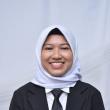 Ms Dessy Ade Pratiwi
Universitas Muhammadiyah Surakarta, Indonesia
(Mechanical Engineering) |
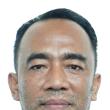 Mr Hendi saryanto
Universitas Muhammadiyah Prof.Dr HAMKA, Indonesia
(Mechanical Engineering) |

Mr Muhammad Alfatih Hendrawan
Universitas Muhammadiyah Surakarta, Indonesia
(manufacturing, material) |

Mr Nur Aklis
Universitas Muhammadiyah Surakarta, Indonesia
(energy) |

Prof Sarjito
Universitas Muhammadiyah Surakarta, Indonesia
(Energy) |
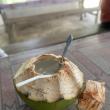 Ms Taurista Perdana Syawitri, S.T., M.Sc., Ph.D.
Universitas Muhammadiyah Surakarta, Indonesia
(Computational Fluid Dynamics, Wind Energy, Wind Turbine, Fluid Flow, Hydrogen Storage, Aerodynamics) |

Assoc Prof. Tri Widodo Besar Riyadi
Universitas Muhammadiyah Surakarta, Indonesia
(material science and engineering, combustion synthesis) |

Ms Ummi Kultsum
Universitas Muhammadiyah Surakarta, Indonesia
|
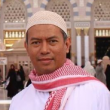 Assoc. Prof. Dr. Waluyo Adi Siswanto
Universitas Muhammadiyah Surakarta (UMS), Indonesia
(Mechanical engineering, computational mechanics, vibration and dynamics) |
Scientific Committee
Prof. Ahmad Fauzi bin Ismail (Universiti Teknologi Malaysia, Malaysia)
Dr. Nasser Tairan (King Khalid University, Saudi Arabia)
Assoc. Prof. Muhaimin Ismoen (Universiti Teknologi Brunei, Brunei)
Prof. Dr. Nasrudin Bin Abd Rahim (University of Malaya, Malaysia)
Dr. Habib Shah (King Khalid University, Saudi Arabia)
Dr. Mosaad Negem (Fayoum University, Egypt)
Dr. Sulistyo (Universitas Diponegoro, Indonesia)
Assoc. Prof. Judha Purbolaksono (Universiti Teknologi Brunei, Brunei)
Dr. Agus Yulianto (Universitas Muhammadiyah Surakarta, Indonesia)
Dr. Eugene Wong (Newcastle University International Singapore)
Dr. Wisnu Setiawan (Universitas Muhammadiyah Surakarta, Indonesia)
Dr.-Ing. Jochen Hack (Technische Universität Darmstadt, Germany)
Prof. Dr. Marwan Effendy (Universitas Muhammadiyah Surakarta, Indonesia)
Prof. Dr. Supriyono (Universitas Muhammadiyah Surakarta, Indonesia)
Prof. Dr. Sarjito (Universitas Muhammadiyah Surakarta, Indonesia)
Authors who submit to this event agree (if the papers are accepted) to the following terms:
Terms of submission
Papers must be submitted on the understanding that they have not been published elsewhere (except in the form of an abstract or as part of a published lecture, review, or thesis) and are not currently under consideration by another journal published by any publisher. The submitting author is responsible for ensuring that the article's publication has been approved by all the other co-authors. It is also the author's responsibility to ensure that the articles emanating from a particular institution are submitted with the approval of the necessary institution. Only an acknowledgment from the editorial office officially establishes the date of receipt. Further correspondence and proof will be sent to the author(s) before publication unless otherwise indicated. It is the condition of submission of a paper that the authors permit editing of the paper for readability.
Copyright Notice
Authors who publish with this journal agree to the following terms:
- Authors retain copyright and grant the journal right of first publication with the work simultaneously licensed under a Creative Commons Attribution License that allows others to share the work with an acknowledgement of the work''s authorship and initial publication in this journal.
- Authors are able to enter into separate, additional contractual arrangements for the non-exclusive distribution of the journal''s published version of the work (e.g., post it to an institutional repository or publish it in a book), with an acknowledgement of its initial publication in this journal.
- Authors are permitted and encouraged to post their work online (e.g., in institutional repositories or on their website) prior to and during the submission process, as it can lead to productive exchanges, as well as earlier and greater citation of published work (See The Effect of Open Access).
Terms of Publication
The journal is currently indexed by SCOPUS. However authors should understand that SCOPUS regularly review all journals. Please always check the coverage status of the journal.
 Content from this work may be used under the terms of the Creative Commons Attribution 3.0 licence. Any further distribution of this work must maintain attribution to the author(s) and the title of the work, journal citation and DOI.”
Content from this work may be used under the terms of the Creative Commons Attribution 3.0 licence. Any further distribution of this work must maintain attribution to the author(s) and the title of the work, journal citation and DOI.”
Peer Review Process
All submitted full papers will be peer reviewed. The acceptance will be granted if the recommendations from the reviewers are positive. The criteria are based on the technical contents, clarity and format. Authors should make sure the submitted papers use the template for this conference. There are three review processes: Initial Review, Peer Review and Recommendation.
Initial Review
The track director evaluates each manuscript in the submission track to determine if its topic and content is suitable for consideration for the conference before being reviewed. Manuscripts that do not meet minimum criteria are returned to the authors. This is in the best interest of the authors who could then decide to either correct the problems or to submit the manuscript to a more appropriate venue, avoiding delays from a lengthy review process that would nonetheless lead to rejection.
Peer Review
Manuscripts that pass the initial review by the Track Directors, will be sent to several referees based on their expertise. Each manuscript is reviewed by at least two referees. The referees are asked to evaluate the manuscript based on its originality, soundness of methodology, impact to design research, and relevance to design practices. To facilitate timely publication, referees are asked to complete their reviews and provide individual critiques within two weeks. After collecting the referees' reports, the Track Director makes a recommendation on the acceptability of the manuscript.
Acceptance Decision
Based on the referees' comments, the Track Director makes a final decision on the acceptability of the manuscript and communicates to the authors the decision, along with referees' reports. The status reports to reviewers should identify the reviewers of each paper, the final decision can be "Accept Submission", "Revisions Required", or "Decline Submission." The revised version should be submitted considering the review comments.
Plagiarism
The authors should make sure that the manuscript pass a criterion of maximum 30 percents similarities to other publications.
